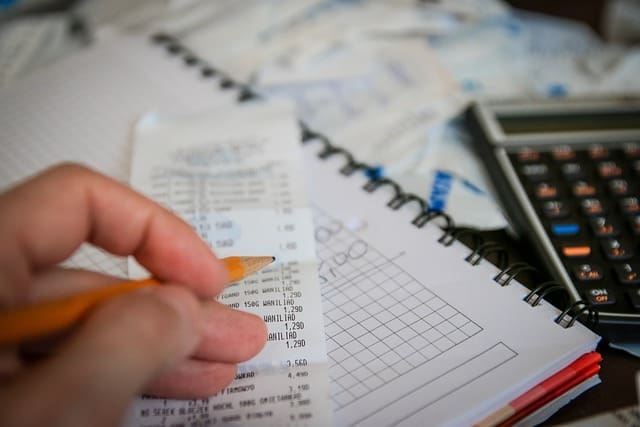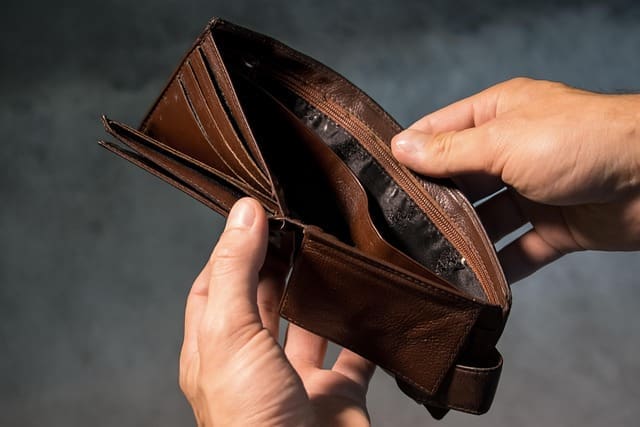1. Seek professional legal advice.
The timing of filing for bankruptcy before or after a divorce is very important. The further financial situation of both parties may depend on it. To better understand all the nuances of both processes, you should seek professional legal advice.
A qualified lawyer will be able to give you advice:
- how best to approach the process;
- what steps should be taken to protect the interests of both parties;
- any tax consequences associated with filing for bankruptcy before or after the divorce;
- how to choose the best way to file for bankruptcy during a divorce.
A specialist will analyze all your circumstances and will be able to advise you on the most effective way to file for bankruptcy during your divorce.
It is important to remember that when one party files for bankruptcy during a divorce, it can directly affect the other party’s credit history, as well as their future access to credit.
2. Create a budget and stick to it.
If the couple has significant debt, filing for bankruptcy before the divorce is finalized may be the best option. This can help reduce the amount of debt owed by each spouse. This option should also be considered if one of the partners is planning to file for Chapter 7 bankruptcy. This type of filing allows for the complete elimination of a large amount of debt.
Creating and sticking to a budget will help you survive both bankruptcy and divorce. Planning can help:
- Reduce stress levels.
- Stay on the right financial track during this difficult period.
- Avoid falling behind on all necessary payments.
Having a plan that defines monthly expenses while dealing with bankruptcy and divorce issues and ensures that all bills are paid on time. Couples should set aside additional funds each month for any unexpected expenses that may arise during the process.
Potential steps to take when dealing with bankruptcy and divorce at the same time:
| Step | Description |
| 1 | Consult with an attorney experienced in both bankruptcy and divorce law. |
| 2 | Determine which type of bankruptcy is best for your situation (Chapter 7 or Chapter 13). |
| 3 | Complete the bankruptcy filing process, which includes submitting a petition, schedules, and other required forms to the court. |
| 4 | Attend the meeting of creditors, which is a meeting with your creditors and the bankruptcy trustee. |
| 5 | Determine how to divide assets and debts in the divorce settlement. |
| 6 | Review any support obligations (such as alimony or child support) and how they may be impacted by the bankruptcy filing. |
| 7 | Work with your attorney to ensure that the divorce settlement is structured in a way that maximizes the benefits of the bankruptcy filing. |
| 8 | Follow all requirements and deadlines set by the court and the bankruptcy trustee. |
| 9 | Keep open lines of communication with your attorney, your ex-spouse, and any creditors involved in the bankruptcy or divorce. |
| 10 | Create a plan to rebuild your credit and financial stability after the bankruptcy and divorce processes are complete. |
3. Prioritize your debts and focus on paying off the most urgent ones.

After the bankruptcy process is completed, you are no longer responsible for these debts. It is also worth noting that filing for bankruptcy may affect the distribution of property while getting a divorce in Georgia online.
You can also consider filing for bankruptcy after the divorce is finalized. In this case, you need to:
- make sure that all your assets are protected from creditors;
- that any joint debt with your ex-partner was repaid before filing for bankruptcy. You should also
- consider whether bankruptcy will bring any benefit by comparing the number of debts with the amount you are able to pay over time.
If you are going through bankruptcy and divorce proceedings at the same time, it is important to prioritize your debts and focus on paying off the most important ones first. Before deciding when to file for bankruptcy: before or during the divorce, you should weigh all the nuances and consult with a lawyer.
4. Consider all options for filing for bankruptcy.
There are certain pros and cons of filing for bankruptcy before or after a divorce. When considering the pros, you should recognize that filing for bankruptcy can:
- help reduce the amount of debt to be distributed in a divorce.
- help free up funds that may have been tied up in joint accounts or assets.
- provide additional leverage during negotiations with creditors on debt settlement on both sides.
On the other hand, should I file for bankruptcy before or after the divorce? It can create certain complications. For example:
- Filing during a divorce may result in an unequal distribution of assets. One party will be allowed to keep certain assets, while the other will have to liquidate them to pay off debts.
- This can also potentially delay the process and increase the legal costs associated with bankruptcy.
It is important to weigh all options before filing for bankruptcy in your particular situation. Analyze in detail how filing will affect your current and future financial situation and your divorce proceedings. Get advice from lawyers who are familiar with family law and bankruptcy law to help you make the best possible decision.
5. Make a plan to divide assets and liabilities between you and your partner.
Depending on your situation, it may be helpful to file for bankruptcy before the divorce. This will help to significantly reduce some of your joint debts. Sometimes filing for bankruptcy after a divorce is more beneficial, as it allows you to divide your debts into separate categories. If both spouses are filing for bankruptcy during the divorce proceedings, it is worth making sure that each party clearly knows and understands their rights and obligations regarding bankruptcy. Also, when filing for bankruptcy during a divorce, it will be helpful to have
- consulting with a lawyer or financial advisor regarding any potential tax or other consequences.
- Keep accurate records of all assets and liabilities for their subsequent fair distribution between spouses.
6. Take time to take care of yourself emotionally and physically.


The body needs the energy to remain functional and to withstand the whole complicated bankruptcy procedure during the divorce proceedings. Quality advice will help you cope with this load without unnecessary exhaustion:
Try to take at least a few minutes breaks during the day to relax and relieve stress; Secondly, consider seeking professional help from a therapist; this can be a great way to learn to cope with the feelings associated with declaring bankruptcy and divorce at the same time.
- take your time, research, and analyze everything carefully;
- try not to feel overwhelmed by the decisions you will have to make;
- make sure you are satisfied with your decision before moving forward;
All of this will help you learn how to cope with the feelings associated with filing for bankruptcy and divorce at the same time.
Remember that you are going through an incredibly difficult time, but taking care of yourself will help you come out of it stronger than ever before.
Featured Image by Andrew Khoroshavin from Pixabay




